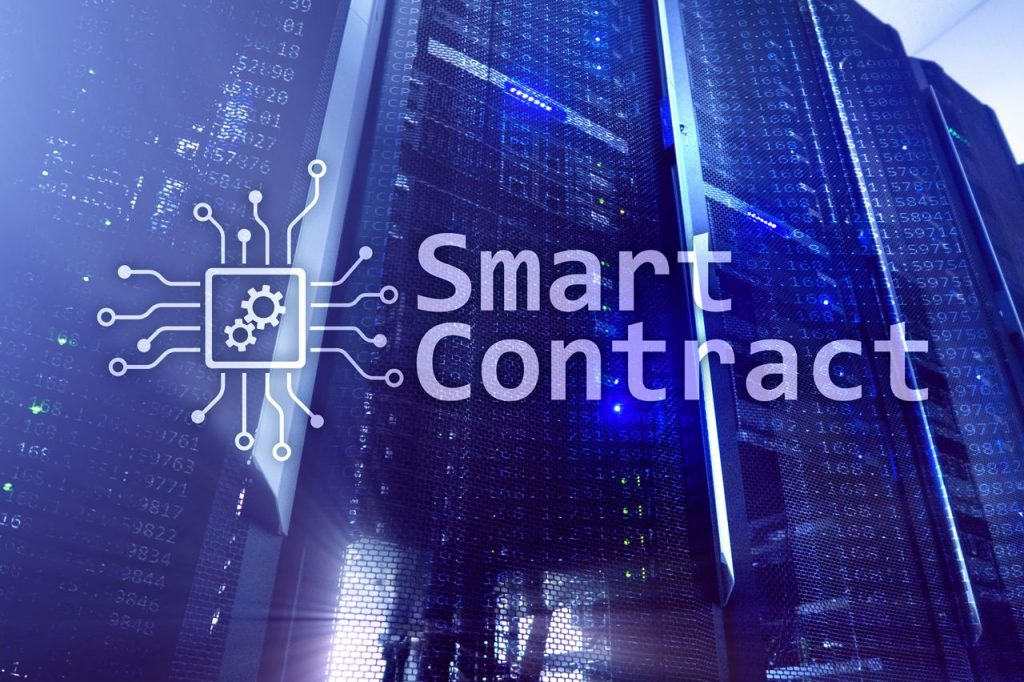Before we dip into:
- According to a report by MarketsandMarkets, the global smart contracts market size is projected to grow from USD 13.7 billion in 2021 to USD 30.2 billion by 2026 at a Compound Annual Growth Rate (CAGR) of 17.6% during the forecast period.
- A survey by Deloitte found that 73% of respondents agreed that blockchain and smart contracts are a top-five strategic priority for their organizations, indicating a growing interest in this technology.
- A report by Gartner predicts that by 2023, blockchain smart contracts will significantly impact industries such as government, financial services, and healthcare, potentially adding up to $3.1 trillion in business value.
Smart contracts are digital programs that automate the execution of contractual terms. They offer numerous benefits, from increased efficiency to reduced costs, and have applications in various industries. At FSSP we consult our clients at any stage of Smart Contract Development. Get free consultation with our expert.
In this article, we will explore what smart contracts are, why they are needed, their real-world applications, how they work, and how they are developed.

Smart Contracts and Their Significance
If you’ve been keeping up with the latest developments in blockchain technology, you may have heard of smart contracts.
What are Smart Contracts?
“Smart contract is a computer program that automatically executes the terms of a contract when certain conditions are met.”
These contracts are self-executing, meaning they can automatically verify, execute, and enforce the terms of a contract without the need for intermediaries. Smart contracts are built on blockchain technology and operate on a decentralized network.
Benefits of Smart Contracts
Smart contracts offer several benefits that traditional contracts do not.
- One of the main advantages is that they can significantly reduce transaction costs by eliminating the need for intermediaries.
- Smart contracts can also increase the speed and efficiency of contract execution by automating the process.
- Smart contracts can enhance security and transparency by ensuring that all parties have access to the same information and that the contract terms cannot be altered without consent.
Industries That Can Benefit from Smart Contracts
Smart contracts can be applied to various industries, including finance, real estate, healthcare, supply chain management, etc. For instance, smart contracts can automate payments, insurance claims, and stock trades in the finance industry.
In the real estate industry, smart contracts can simplify the process of property transfers and reduce the need for intermediaries. In healthcare, smart contracts can be used to manage
Real-World Examples of Smart Contracts

Smart contracts have the potential to revolutionize many industries by automating complex processes and removing the need for intermediaries.
Here are some real-world examples of how smart contracts are being used in various industries:
- Supply Chain Management: Smart contracts are being used to improve transparency and accountability in supply chain management. For instance, the food industry uses smart contracts to track the origin and movement of food products, ensuring that they meet safety and quality standards.
- Real Estate: The way real estate transactions are conducted using smart contracts is safe, secure and efficient without intermediaries. For example, blockchain-based smart contracts are used for property title transfers, lease agreements, and rental payments.
- Healthcare: The potential to improve healthcare systems’ efficiency and security can’t be denied. For example, smart contracts can automate insurance claim processing, ensuring that claims are paid out quickly and accurately.
- Financial Services: Smart contracts are being used to streamline financial transactions and reduce the need for intermediaries. For example, blockchain-based smart contracts automate loan agreements, trade settlements, and insurance claims.
We can say that smart contract technologies are becoming increasingly important in various industries due to their ability to automate complex processes, reduce costs, and improve efficiency and security. As more organizations adopt blockchain technology and smart contracts, we expect significant growth and innovation in the coming years.
How Do Smart Contracts Work?

Smart contracts are self-executing contracts with the terms of the agreement between buyer and seller being directly written into lines of code. They operate on blockchain technology, which makes them immutable and transparent.
Let’s take a closer look at how smart contracts work.
- The Role of Blockchain Technology: When a smart contract is executed, it is recorded on the blockchain and cannot be altered. This creates a tamper-proof system that ensures the terms of the contract are enforced without the need for intermediaries such as banks or lawyers.
- Decentralized Execution: Smart contracts are executed decentralized, which means they operate on a peer-to-peer network instead of relying on a centralized authority. This makes them faster, more efficient, and less expensive than traditional contracts, which can be slow and require a lot of paperwork.
- Self-Executing Code: These are essentially lines of code that self-execute when certain conditions are met. For example, suppose a smart contract is programmed to release payment to a seller once the buyer receives the product. In that case, it will automatically do so without the need for any human intervention. This makes smart contracts highly efficient and eliminates the need for intermediaries to enforce the terms of the contract.
If we sincerely look at smart contract benefits and development, we can easily imagine that this technology can transform how we conduct business.
By leveraging the power of blockchain, they offer secure, efficient, and transparent transactions without intermediaries. Now let’s talk about the development of smart contracts. If you are going to use this technology, you should better understand smart contract developments and how to create them.
Smart Contract Development

Smart contracts are self-executing programs that run on blockchain networks, automating the execution of contracts without the need for intermediaries.
Here are some key points to consider when it comes to smart contract development:
You might be wondering: Are Smart Contracts Only on Ethereum? Well, Smart contracts are not limited to the Ethereum blockchain.
Many blockchain networks, such as EOS and TRON, also support smart contracts. However, Ethereum remains the most popular blockchain platform for smart contract development, with over 2,000 decentralized applications (dApps) currently running on the network.
The difficulty of Smart Contract Development
Developing smart contracts can be challenging, requiring specialized knowledge of blockchain technology and programming languages. In addition, security is a critical concern, as smart contracts are irreversible and self-executing.
Writing Smart Contracts
The coding of smart contracts involves defining the terms and conditions of a contract in code. This can include the rules for the contract, the parties involved, and the requirements for execution. Developers typically use programming languages such as Solidity, Vyper, and Rust to write smart contracts.
How Much Does it Cost to Develop a Smart Contract?
If you’re considering developing a smart contract for your business, one of the first questions you will likely have is how much it will cost.
Let’s take a closer look at the factors that can affect the cost of smart contract development and some cost estimates to help you budget for your project.
Factors That Affect the Cost of Smart Contract Development:
- Complexity: The more complex the contract, the more time and effort it will take to develop, increasing the overall cost.
- Integration: If you need to integrate the smart contract with other systems or platforms, it may require additional development work, which can increase the cost.
- Testing and Deployment: Proper testing and deploying smart contracts can be time-consuming, adding to the overall cost.
- Development Team: The experience and expertise of the development team can also affect the cost of smart contract development.
According to a report by procoders, the cost of developing a simple, smart contract can range from $2,000 to $4,000, while Hackernoon finds that a more complex contract can cost anywhere from $25,000 to $50,000.
However, other sources suggest that the cost of smart contract development can vary significantly depending on the abovementioned factors. For example, some blockchain developers charge hourly rates ranging from $50 to $200 per hour. Know our rates by contacting our specialist.
Conclusion
Smart contracts significantly benefit various industries by increasing efficiency, reducing costs, and automating contractual terms. As blockchain technology continues to evolve, the development of smart contracts will become more accessible, leading to increased adoption.
However, developing smart contracts requires expertise and careful consideration of various factors, including programming languages, development platforms, and cost. By understanding the potential benefits and challenges of smart contract development, businesses can leverage this technology to streamline their operations and stay ahead of the competition. At FSSP we can help you at any stage of your project, consult with our expert.



